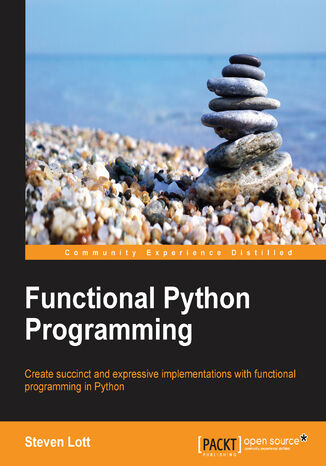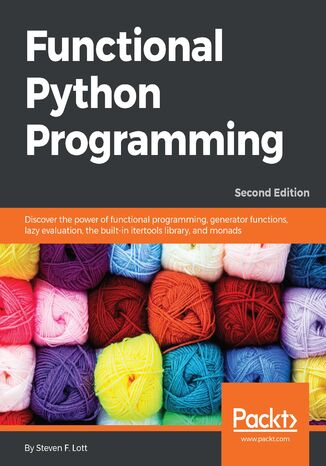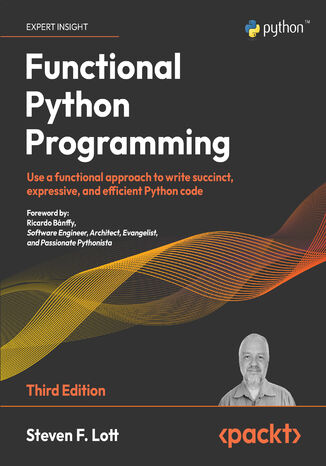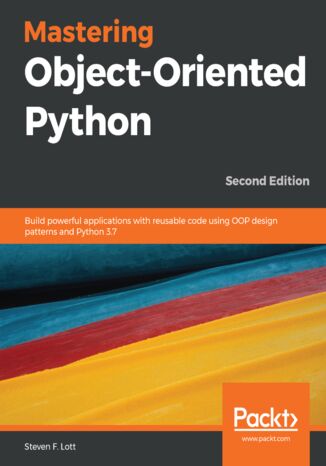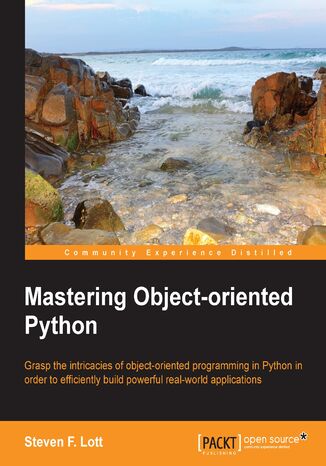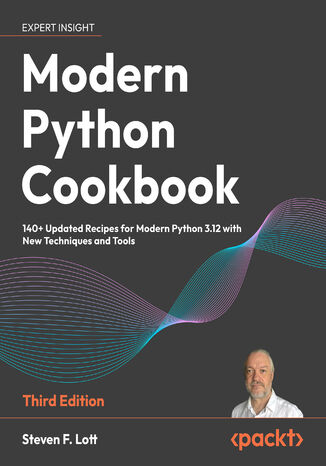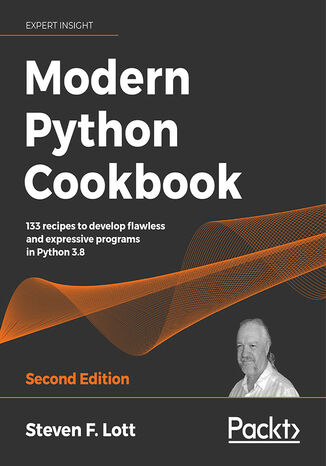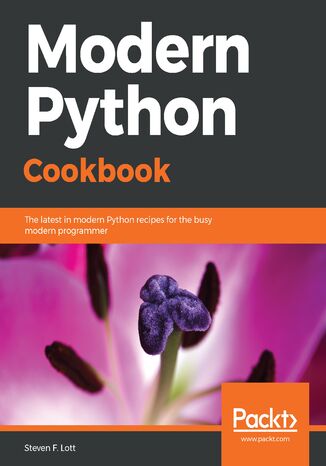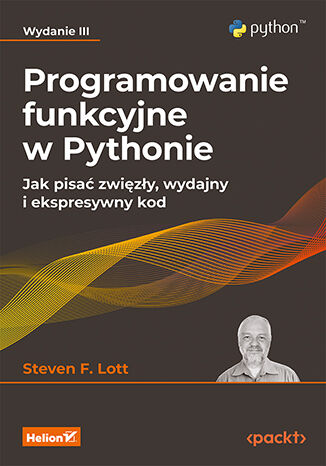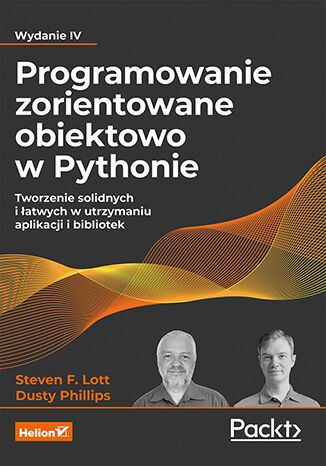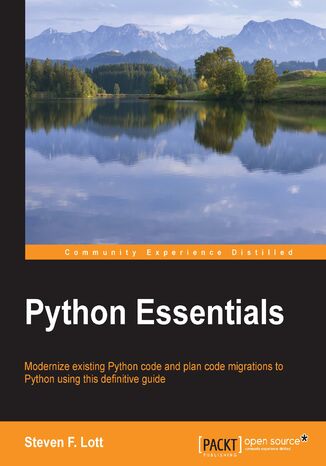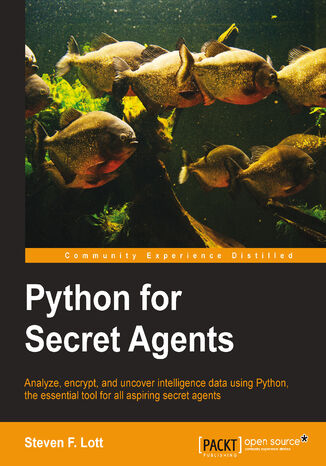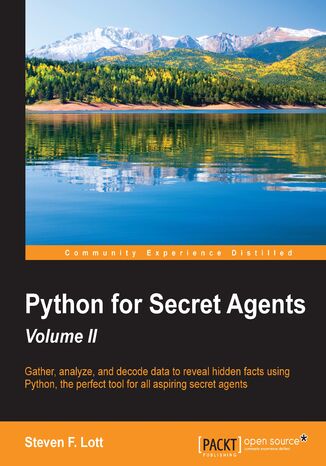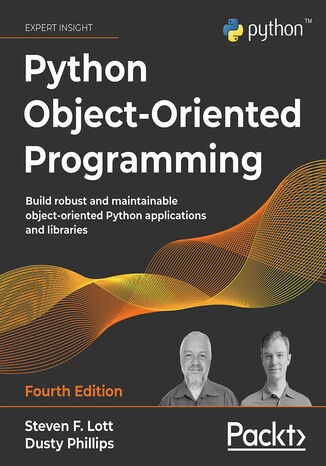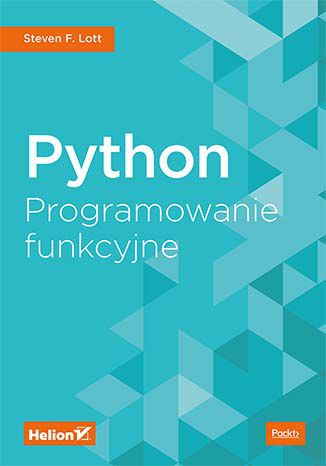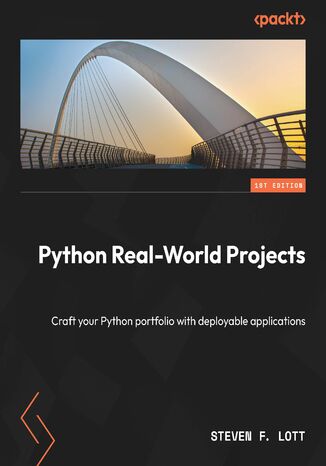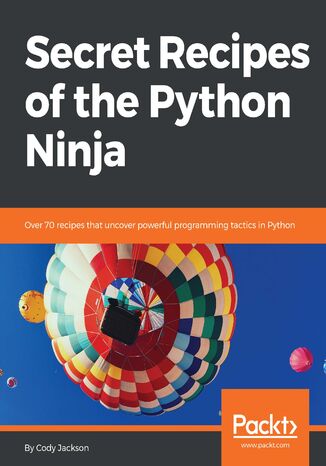Categories
Ebooks
-
Business and economy
- Bitcoin
- Businesswoman
- Coaching
- Controlling
- E-business
- Economy
- Finances
- Stocks and investments
- Personal competence
- Computer in the office
- Communication and negotiation
- Small company
- Marketing
- Motivation
- Multimedia trainings
- Real estate
- Persuasion and NLP
- Taxes
- Social policy
- Guides
- Presentations
- Leadership
- Public Relation
- Reports, analyses
- Secret
- Social Media
- Sales
- Start-up
- Your career
- Management
- Project management
- Human Resources
-
For children
-
For youth
-
Education
-
Encyclopedias, dictionaries
-
E-press
- Architektura i wnętrza
- Health and Safety
- Biznes i Ekonomia
- Home and garden
- E-business
- Ekonomia i finanse
- Esoterecism
- Finances
- Personal finance
- Business
- Photography
- Computer science
- HR & Payroll
- For women
- Computers, Excel
- Accounts
- Culture and literature
- Scientific and academic
- Environmental protection
- Opinion-forming
- Education
- Taxes
- Travelling
- Psychology
- Religion
- Agriculture
- Book and press market
- Transport and Spedition
- Healthand beauty
-
History
-
Computer science
- Office applications
- Data bases
- Bioinformatics
- IT business
- CAD/CAM
- Digital Lifestyle
- DTP
- Electronics
- Digital photography
- Computer graphics
- Games
- Hacking
- Hardware
- IT w ekonomii
- Scientific software package
- School textbooks
- Computer basics
- Programming
- Mobile programming
- Internet servers
- Computer networks
- Start-up
- Operational systems
- Artificial intelligence
- Technology for children
- Webmastering
-
Other
-
Foreign languages
-
Culture and art
-
School reading books
-
Literature
- Antology
- Ballade
- Biographies and autobiographies
- For adults
- Dramas
- Diaries, memoirs, letters
- Epic, epopee
- Essay
- Fantasy and science fiction
- Feuilletons
- Work of fiction
- Humour and satire
- Other
- Classical
- Crime fiction
- Non-fiction
- Fiction
- Mity i legendy
- Nobelists
- Novellas
- Moral
- Okultyzm i magia
- Short stories
- Memoirs
- Travelling
- Narrative poetry
- Poetry
- Politics
- Popular science
- Novel
- Historical novel
- Prose
- Adventure
- Journalism, publicism
- Reportage novels
- Romans i literatura obyczajowa
- Sensational
- Thriller, Horror
- Interviews and memoirs
-
Natural sciences
-
Social sciences
-
School textbooks
-
Popular science and academic
- Archeology
- Bibliotekoznawstwo
- Cinema studies
- Philology
- Polish philology
- Philosophy
- Finanse i bankowość
- Geography
- Economy
- Trade. World economy
- History and archeology
- History of art and architecture
- Cultural studies
- Linguistics
- Literary studies
- Logistics
- Maths
- Medicine
- Humanities
- Pedagogy
- Educational aids
- Popular science
- Other
- Psychology
- Sociology
- Theatre studies
- Theology
- Economic theories and teachings
- Transport i spedycja
- Physical education
- Zarządzanie i marketing
-
Guides
-
Game guides
-
Professional and specialist guides
-
Law
- Health and Safety
- History
- Road Code. Driving license
- Law studies
- Healthcare
- General. Compendium of knowledge
- Academic textbooks
- Other
- Construction and local law
- Civil law
- Financial law
- Economic law
- Economic and trade law
- Criminal law
- Criminal law. Criminal offenses. Criminology
- International law
- International law
- Health care law
- Educational law
- Tax law
- Labor and social security law
- Public, constitutional and administrative law
- Family and Guardianship Code
- agricultural law
- Social law, labour law
- European Union law
- Industry
- Agricultural and environmental
- Dictionaries and encyclopedia
- Public procurement
- Management
-
Tourist guides and travel
- Africa
- Albums
- Southern America
- North and Central America
- Australia, New Zealand, Oceania
- Austria
- Asia
- Balkans
- Middle East
- Bulgary
- China
- Croatia
- The Czech Republic
- Denmark
- Egipt
- Estonia
- Europe
- France
- Mountains
- Greece
- Spain
- Holand
- Iceland
- Lithuania
- Latvia
- Mapy, Plany miast, Atlasy
- Mini travel guides
- Germany
- Norway
- Active travelling
- Poland
- Portugal
- Other
- Przewodniki po hotelach i restauracjach
- Russia
- Romania
- Slovakia
- Slovenia
- Switzerland
- Sweden
- World
- Turkey
- Ukraine
- Hungary
- Great Britain
- Italy
-
Psychology
- Philosophy of life
- Kompetencje psychospołeczne
- Interpersonal communication
- Mindfulness
- General
- Persuasion and NLP
- Academic psychology
- Psychology of soul and mind
- Work psychology
- Relacje i związki
- Parenting and children psychology
- Problem solving
- Intellectual growth
- Secret
- Sexapeal
- Seduction
- Appearance and image
- Philosophy of life
-
Religion
-
Sport, fitness, diets
-
Technology and mechanics
Audiobooks
-
Business and economy
- Bitcoin
- Businesswoman
- Coaching
- Controlling
- E-business
- Economy
- Finances
- Stocks and investments
- Personal competence
- Communication and negotiation
- Small company
- Marketing
- Motivation
- Real estate
- Persuasion and NLP
- Taxes
- Social policy
- Guides
- Presentations
- Leadership
- Public Relation
- Secret
- Social Media
- Sales
- Start-up
- Your career
- Management
- Project management
- Human Resources
-
For children
-
For youth
-
Education
-
Encyclopedias, dictionaries
-
E-press
-
History
-
Computer science
-
Other
-
Foreign languages
-
Culture and art
-
School reading books
-
Literature
- Antology
- Ballade
- Biographies and autobiographies
- For adults
- Dramas
- Diaries, memoirs, letters
- Epic, epopee
- Essay
- Fantasy and science fiction
- Feuilletons
- Work of fiction
- Humour and satire
- Other
- Classical
- Crime fiction
- Non-fiction
- Fiction
- Mity i legendy
- Nobelists
- Novellas
- Moral
- Okultyzm i magia
- Short stories
- Memoirs
- Travelling
- Poetry
- Politics
- Popular science
- Novel
- Historical novel
- Prose
- Adventure
- Journalism, publicism
- Reportage novels
- Romans i literatura obyczajowa
- Sensational
- Thriller, Horror
- Interviews and memoirs
-
Natural sciences
-
Social sciences
-
Popular science and academic
-
Guides
-
Professional and specialist guides
-
Law
-
Tourist guides and travel
-
Psychology
- Philosophy of life
- Interpersonal communication
- Mindfulness
- General
- Persuasion and NLP
- Academic psychology
- Psychology of soul and mind
- Work psychology
- Relacje i związki
- Parenting and children psychology
- Problem solving
- Intellectual growth
- Secret
- Sexapeal
- Seduction
- Appearance and image
- Philosophy of life
-
Religion
-
Sport, fitness, diets
-
Technology and mechanics
Videocourses
-
Data bases
-
Big Data
-
Biznes, ekonomia i marketing
-
Cybersecurity
-
Data Science
-
DevOps
-
For children
-
Electronics
-
Graphics/Video/CAX
-
Games
-
Microsoft Office
-
Development tools
-
Programming
-
Personal growth
-
Computer networks
-
Operational systems
-
Software testing
-
Mobile devices
-
UX/UI
-
Web development
-
Management
Podcasts
If you’re a Python developer who wants to discover how to take the power of functional programming (FP) and bring it into your own programs, then this book is essential for you, even if you know next to nothing about the paradigm. Starting with a general overview of functional concepts, you’ll explore common functional features such as first-class and higher-order functions, pure functions, and more. You’ll see how these are accomplished in Python 3.6 to give you the core foundations you’ll build upon. After that, you’ll discover common functional optimizations for Python to help your apps reach even higher speeds. You’ll learn FP concepts such as lazy evaluation using Python’s generator functions and expressions. Moving forward, you’ll learn to design and implement decorators to create composite functions. You'll also explore data preparation techniques and data exploration in depth, and see how the Python standard library fits the functional programming model. Finally, to top off your journey into the world of functional Python, you’ll at look at the PyMonad project and some larger examples to put everything into perspective.
Steven F. Lott, Ricardo Bánffy
Not enough developers understand the benefits of functional programming, or even what it is. Author Steven Lott demystifies the approach, teaching you how to improve the way you code in Python and make gains in memory use and performance.Starting from the fundamentals, this book shows you how to apply functional thinking and techniques in a range of scenarios, with examples centered around data cleaning and exploratory data analysis. You’ll learn how to use generator expressions, list comprehensions, and decorators to your advantage. You don’t have to abandon object-oriented design completely, though – you’ll also see how Python’s native object-orientation is used in conjunction with functional programming techniques.By the end of this book, you’ll be well versed in the essential functional programming features of Python, and understand why and when functional thinking helps. You’ll also have all the tools you need to pursue any additional functional topics that are not part of the Python language.
Object-oriented programming (OOP) is a relatively complex discipline to master, and it can be difficult to see how general principles apply to each language's unique features. With the help of the latest edition of Mastering Objected-Oriented Python, you'll be shown how to effectively implement OOP in Python, and even explore Python 3.x. Complete with practical examples, the book guides you through the advanced concepts of OOP in Python, and demonstrates how you can apply them to solve complex problems in OOP. You will learn how to create high-quality Python programs by exploring design alternatives and determining which design offers the best performance. Next, you'll work through special methods for handling simple object conversions and also learn about hashing and comparison of objects. As you cover later chapters, you'll discover how essential it is to locate the best algorithms and optimal data structures for developing robust solutions to programming problems with minimal computer processing. Finally, the book will assist you in leveraging various Python features by implementing object-oriented designs in your programs.By the end of this book, you will have learned a number of alternate approaches with different attributes to confidently solve programming problems in Python.
Python is the go-to language for developers, engineers, data scientists, and hobbyists worldwide. Known for its versatility, Python can efficiently power applications, offering remarkable speed, safety, and scalability. This book distills Python into a collection of straightforward recipes, providing insights into specific language features within various contexts, making it an indispensable resource for mastering Python and using it to handle real-world use cases.The third edition of Modern Python Cookbook provides an in-depth look into Python 3.12, offering more than 140 new and updated recipes that cater to both beginners and experienced developers. This edition introduces new chapters on documentation and style, data visualization with Matplotlib and Pyplot, and advanced dependency management techniques using tools like Poetry and Anaconda. With practical examples and detailed explanations, this cookbook helps developers solve real-world problems, optimize their code, and get up to date with the latest Python features.
Python is the preferred choice of developers, engineers, data scientists, and hobbyists everywhere. It is a great language that can power your applications and provide great speed, safety, and scalability. It can be used for simple scripting or sophisticated web applications. By exposing Python as a series of simple recipes, this book gives you insight into specific language features in a particular context. Having a tangible context helps make the language or a given standard library feature easier to understand.This book comes with 133 recipes on the latest version of Python 3.8. The recipes will benefit everyone, from beginners just starting out with Python to experts. You'll not only learn Python programming concepts but also how to build complex applications.The recipes will touch upon all necessary Python concepts related to data structures, object oriented programming, functional programming, and statistical programming. You will get acquainted with the nuances of Python syntax and how to effectively take advantage of it.By the end of this Python book, you will be equipped with knowledge of testing, web services, configuration, and application integration tips and tricks. You will be armed with the knowledge of how to create applications with flexible logging, powerful configuration, command-line options, automated unit tests, and good documentation.
Modern Python Cookbook. The latest in modern Python recipes for the busy modern programmer
Python is the preferred choice of developers, engineers, data scientists, and hobbyists everywhere. It is a great scripting language that can power your applications and provide great speed, safety, and scalability. By exposing Python as a series of simple recipes, you can gain insight into specific language features in a particular context. Having a tangible context helps make the language or standard library feature easier to understand.This book comes with over 100 recipes on the latest version of Python. The recipes will benefit everyone ranging from beginner to an expert. The book is broken down into 13 chapters that build from simple language concepts to more complex applications of the language. The recipes will touch upon all the necessary Python concepts related to data structures, OOP, functional programming, as well as statistical programming. You will get acquainted with the nuances of Python syntax and how to effectively use the advantages that it offers. You will end the book equipped with the knowledge of testing, web services, and configuration and application integration tips and tricks. The recipes take a problem-solution approach to resolve issues commonly faced by Python programmers across the globe. You will be armed with the knowledge of creating applications with flexible logging, powerful configuration, and command-line options, automated unit tests, and good documentation.
Programowanie funkcyjne w Pythonie. Jak pisać zwięzły, wydajny i ekspresywny kod. Wydanie III
Mimo że Python nie jest typowym językiem programowania funkcyjnego, umożliwia pisanie kodu w sposób właściwy dla tego podejścia. W efekcie można tworzyć zwięzłe i eleganckie programy, które działają szybciej i zużywają mniej zasobów. Jeśli uważasz, że te argumenty uzasadniają zapoznanie się z funkcyjnym podejściem do programowania w Pythonie, to ta książka jest dla Ciebie. Dzięki temu praktycznemu podręcznikowi zrozumiesz, kiedy i dlaczego warto zastosować myślenie funkcyjne, a także jak korzystać z technik funkcyjnych w różnych scenariuszach. Dowiesz się również, jakie narzędzia i biblioteki przeznaczone do tego celu są dostępne w Pythonie i jak używać wyrażeń generatorowych, list składanych i dekoratorów. W tym wydaniu znalazły się nowe rozdziały dotyczące złożonych obiektów bezstanowych, funkcji kombinatorycznych i pakietu toolz, zawierającego zbiór modułów wspomagających pisanie programów funkcyjnych. Umieszczono tu ponadto sporo ciekawych przykładów, dotyczących choćby eksploracyjnej analizy danych i ich czyszczenia. W książce między innymi: najciekawsze biblioteki i wbudowane funkcje wyższego rzędu w Pythonie tworzenie funkcji generatorowych i leniwe wartościowanie implementacja dekoratorów do kompozycji funkcyjnej podpowiedzi typów w Pythonie obsługa współbieżności i implementacja usług sieciowych biblioteka PyMonad i tworzenie symulacji z obsługą stanów Chcesz tworzyć wydajny kod? Naucz się programowania funkcyjnego!
Steven F. Lott, Dusty Phillips
Python zasłużenie cieszy się ogromną popularnością. To język, który może służyć do wielu celów, szczególnie do szybkiego tworzenia niewielkich, wyspecjalizowanych programów. Projektowanie bardziej rozbudowanego, wyrafinowanego oprogramowania też jest możliwe, wymaga jednak zdobycia kilku ważnych umiejętności. Bardzo dobrym pomysłem okazuje się zastosowanie w programowaniu w Pythonie podejścia zorientowanego obiektowo. Tak tworzony kod jest czytelny, solidny, łatwy w rozbudowie i o wiele efektywniejszy w działaniu. Oto przyjazny przewodnik dla programistów Pythona, wyczerpująco wyjaśniający wiele zagadnień programowania obiektowego, takich jak dziedziczenie, kompozycja, polimorfizm, tworzenie klas i struktur danych. W książce szczegółowo omówiono zagadnienia obsługi wyjątków, testowania kodu i zastosowania technik programowania funkcyjnego. Opisano też dwa potężne zautomatyzowane systemy testowe: unittest i pytest. Zaprezentowano tematykę utrzymania złożonego oprogramowania napisanego w sposób zorientowany obiektowo, a także podano wskazówki odnoszące się do jego rozbudowy. Ważną częścią przewodnika jest omówienie zasad programowania współbieżnego we współczesnym Pythonie. Co ważne, poszczególne zagadnienia zostały zilustrowane diagramami UML, czytelnymi przykładami i studiami przypadków. W książce między innymi: kiedy korzystać z technik obiektowych implementacja obiektów i mechanizmu dziedziczenia w Pythonie stosowanie wyjątków, a także tworzenie testów jednostkowych i integracyjnych ważniejsze wzorce projektowe i ich implementacja w Pythonie statyczne typowanie dynamicznego kodu programowanie współbieżne przy użyciu asyncio Chcesz tworzyć solidny kod? Zorientuj się na obiekty!
Python is easy to learn and extensible programming language that allows any manner of secret agent to work with a variety of data. Agents from beginners to seasoned veterans will benefit from Python's simplicity and sophistication. The standard library provides numerous packages that move beyond simple beginner missions. The Python ecosystem of related packages and libraries supports deep information processing.This book will guide you through the process of upgrading your Python-based toolset for intelligence gathering, analysis, and communication. You'll explore the ways Python is used to analyze web logs to discover the trails of activities that can be found in web and database servers. We'll also look at how we can use Python to discover details of the social network by looking at the data available from social networking websites.Finally, you'll see how to extract history from PDF files, which opens up new sources of data, and you’ll learn about the ways you can gather data using an Arduino-based sensor device.
Steven F. Lott, Dusty Phillips
Object-oriented programming (OOP) is a popular design paradigm in which data and behaviors are encapsulated in such a way that they can be manipulated together. Python Object-Oriented Programming, Fourth Edition dives deep into the various aspects of OOP, Python as an OOP language, common and advanced design patterns, and hands-on data manipulation and testing of more complex OOP systems. These concepts are consolidated by open-ended exercises, as well as a real-world case study at the end of every chapter, newly written for this edition. All example code is now compatible with Python 3.9+ syntax and has been updated with type hints for ease of learning.Steven and Dusty provide a comprehensive, illustrative tour of important OOP concepts, such as inheritance, composition, and polymorphism, and explain how they work together with Python’s classes and data structures to facilitate good design. In addition, the book also features an in-depth look at Python’s exception handling and how functional programming intersects with OOP. Two very powerful automated testing systems, unittest and pytest, are introduced. The final chapter provides a detailed discussion of Python's concurrent programming ecosystem.By the end of the book, you will have a thorough understanding of how to think about and apply object-oriented principles using Python syntax and be able to confidently create robust and reliable programs.
Python. Programowanie funkcyjne
Zgodnie z paradygmatem programowania funkcyjnego największy nacisk należy kłaść na stałe i funkcje. Polega to na konstruowaniu funkcji oraz na obliczaniu wartości wyrażeń. W ten sposób otrzymuje się kod odporny na błędy. Python nie jest w pełni funkcyjnym językiem programowania, jednak pozwala na taki sposób pisania programów. Dzięki temu umożliwia tworzenie zwięzłego i eleganckiego kodu. Na przykład stosowanie wyrażeń generatorowych w Pythonie sprawia, że tworzone programy działają szybciej, ponieważ zużywają mniej zasobów. Niezależnie więc od stosowanego paradygmatu warto zapożyczyć pewne elementy programowania funkcyjnego i wykorzystać je do tworzenia ekspresyjnych i zwięzłych aplikacji w Pythonie. To znakomity podręcznik dla programistów, którzy chcą wykorzystać techniki i wzorce projektowe z funkcyjnych języków programowania, aby tworzyć w Pythonie zwięzłe, eleganckie i ekspresyjne programy - z czytelnym i łatwym w utrzymaniu kodem. Zawiera ogólny przegląd koncepcji funkcyjnych oraz wyjaśnia tak istotne pojęcia jak funkcje pierwszej klasy, funkcje wyższego rzędu, funkcje czyste, leniwe wartościowanie i wiele innych. Wnikliwie omawia sposób korzystania z tych funkcji w Pythonie 3.6, a także techniki przygotowywania i eksploracji danych. Ponadto pokazuje, w jaki sposób standardowa biblioteka Pythona pasuje do funkcyjnego modelu programowania. Co ważne, w książce znalazło się kilka przykładów prezentujących w praktyce opisane koncepcje. W książce między innymi: podstawy modelu programowania funkcyjnego działania na kolekcjach danych i przetwarzanie krotek projektowanie dekoratorów biblioteka PyMonad usługi sieciowe a programowanie funkcyjne Python: kod funkcyjny i funkcjonalny!
Python Real-World Projects. Craft your Python portfolio with deployable applications
In today's competitive job market, a project portfolio often outshines a traditional resume. Python Real-World Projects empowers you to get to grips with crucial Python concepts while building complete modules and applications. With two dozen meticulously designed projects to explore, this book will help you showcase your Python mastery and refine your skills. Tailored for beginners with a foundational understanding of class definitions, module creation, and Python's inherent data structures, this book is your gateway to programming excellence. You’ll learn how to harness the potential of the standard library and key external projects like JupyterLab, Pydantic, pytest, and requests. You’ll also gain experience with enterprise-oriented methodologies, including unit and acceptance testing, and an agile development approach. Additionally, you’ll dive into the software development lifecycle, starting with a minimum viable product and seamlessly expanding it to add innovative features. By the end of this book, you’ll be armed with a myriad of practical Python projects and all set to accelerate your career as a Python programmer.
This book covers the unexplored secrets of Python, delve into its depths, and uncover its mysteries.You’ll unearth secrets related to the implementation of the standard library, by looking at how modules actually work. You’ll understand the implementation of collections, decimals, and fraction modules. If you haven’t used decorators, coroutines, and generator functions much before, as you make your way through the recipes, you’ll learn what you’ve been missing out on. We’ll cover internal special methods in detail, so you understand what they are and how they can be used to improve the engineering decisions you make. Next, you’ll explore the CPython interpreter, which is a treasure trove of secret hacks that not many programmers are aware of. We’ll take you through the depths of the PyPy project, where you’ll come across several exciting ways that you can improve speed and concurrency. Finally, we’ll take time to explore the PEPs of the latest versions to discover some interesting hacks.

